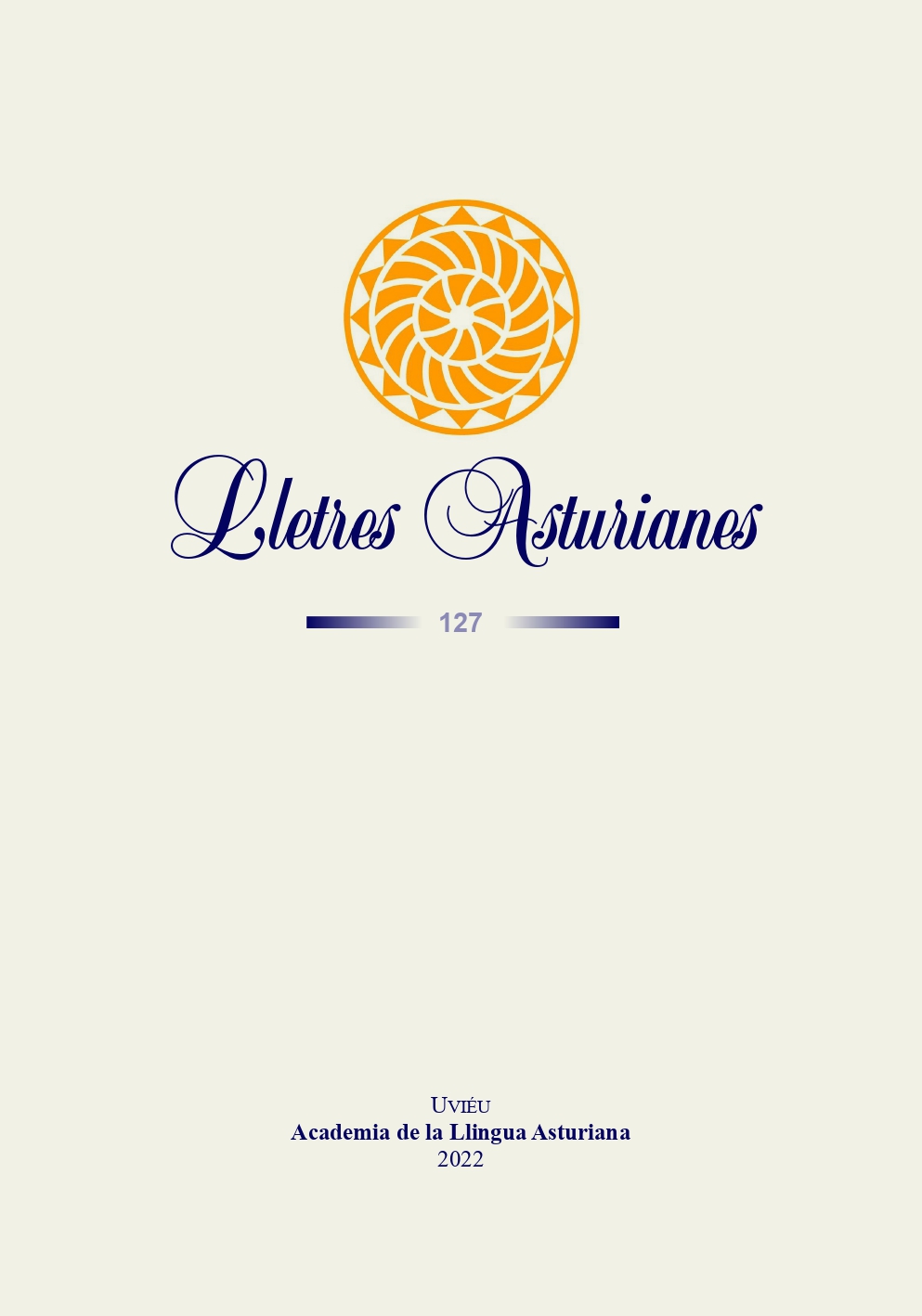Abstract
The aim of this work is the description and analysis of the translation made into Asturian in 1985 by Alejandro Rodríguez Alonso of the book Return to Tagen Ata (1971) by Xosé Luís Méndez Ferrín and which is described on the back cover as «a political parable: in an imagined country Tagen Ata (which is Galicia), increasingly moderate and culturalist positions of the old nationalism confront them with the new radical nationalism». On the other hand, in the words of the author himself, we would have understood this short 44—page novel as a literary pamphlet, not a political one, even though we can see in it a transcript of Galician history, of the nations without a state, or even of the taking of determination of Méndez Ferrín towards the nationalist left that emerged in the face of the most possible political Galicianism in those years. The translation, under the title Retornu a Tagen Ata, was published by the Asturian Language Academy in number 3 of its collection «Academic Library» in 1985 and is the first published translation of a book from Galician to Asturian.
On the other hand, together with this description and analysis of the translation through the answer to questions such as: When is it translated? What is translated? Who translates? Why does he translate or how does he translate? we look for the signs that reveal possible relationships that would exist between both peripheral literary systems and the reception of Galician literature in the Asturian literary system.
References
Academia de la Llingua Asturiana (1981). Normes ortográfiques y Entamos de normalización. Uviéu: ALLA.
Academia de la Llingua Asturiana (1982). Notes y anuncies: tornar obres al bable. Lletres Asturianes, 1, 62-63.
Academia de la Llingua Asturiana (1982b). Notes y anuncies: Tradución al bable. Lletres Asturianes, 4, 96.
Academia de la Llingua Asturiana (1985). Normes ortográfiques y Entamos normativos. Uviéu: ALLA.
Academia de la Llingua Asturiana (2021). Normes ortográfiques. Uviéu: ALLA.
Agost Canós, R. (2017). Literatura traducida, garante de la diversidad lingüística y cultural. Lletres Asturianes, 117, 39-61.
d’Andrés Díaz, R. (1992). La traducción a la llingua asturiana. Lletres Asturianes, 45, 21-34.
Castro García, A. (2021). Análise materialista de Retorno a Tagen Ata (1971). Cumieira. Cadernos de investigación da nova Filoloxía Galega, 6, 11-37.
Even-Zohar, I. (1990). Polysystem Studies. Special issue. Poetics Today, 11 (1)-
Gago, X. (1987). La traducción n’Asturies: problemes y perspeutives. Lliteratura y Futuru (Actes de la I Xunta d’Escritores Asturianos, Villamayor, marzu de 1987), Uviéu, Principáu d’Asturies,
(pp. 53-78).
ISBN (Ministerio de Cultura y Deporte). (e.f.). Consultao en https://www.culturaydeporte.gob.es/webISBN/tituloSimpleFilter.do?cache=init&prev_layout=busquedaisbn&layout=busquedaisbn&language=es
Luna, A. (2006): La traducción de les culturas minorizadas. El caso del gallego. Senez 30. [En http://www.eizie.eus/es/Argitalpenak/Senez/20061220/luna, (consulta 30 de xunu de 2022)].
Méndez Ferrín, X. L. (1971). Retorno a Tagen Ata. Vigo: Edicións Castrelos.
Méndez Ferrín, X. L (1985). Retornu a Tagen Ata. (A. Rodríguez Alonso, Trad.). Uviéu: ALLA. (Obra orixinal asoleyada en 1971).
Mori d’Arriba, M. (2011). La traducción nel sistema lliterariu asturianu (I). Les Fábules d’Antón de Marirreguera. Lletres Asturianes, 105, 111-120.
Observatorio da traducion en Galicia. (s.f.). BITRAGA (Biblioteca da tradución galega). Catálogo. Universidade de Vigo. https://bitraga.webs.uvigo.es
Piñán, B. (1997). Traición y tradición na poesía asturiana de los 90, en Lliteratura Asturiana nos 90. IV Xunta d’Escritores Asturianos. Uviéu: Conseyería de Cultura del Principáu d’Asturies, (pp. 35-41).
Toury, G. (1980). In Search of a Theory of Translation. Tel Aviv: The Porter Institute for Poetics and Semiotics, Tel Aviv University.
Toury, G. (1995). Descriptive Translation Studies and Beyond. Amsterdam-Philadelphia: John Ben-jamins.
Valdés Rodríguez, C. (2016). Un enfoque polisistémicu a la traducción d’obres al asturianu: normes y estratexes. Lletres Asturianes, 114, 101-118.

